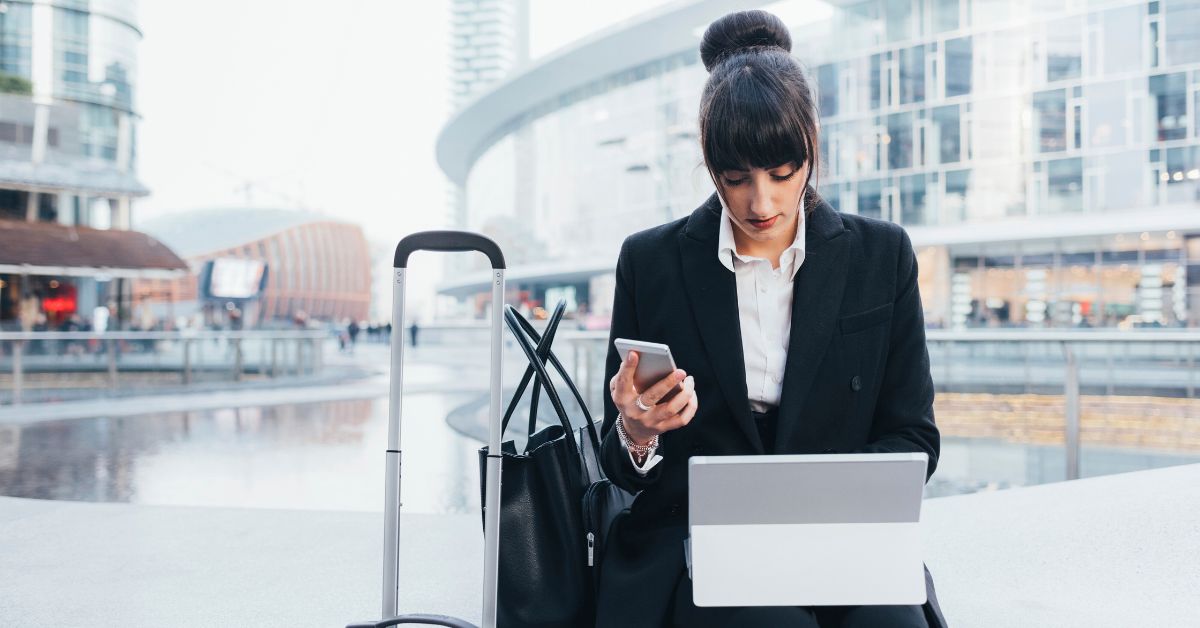
If your employees often go on international business trips, then it will help them to know about a country’s culture and communication norms. Knowledge of international business etiquettes will be beneficial while holding meetings with clients, building strong relationships, and holding respect for one’s culture. For instance, punctuality is very important in England but it’s ‘okay’ if you are 10 minutes late in France.
In this blog, we share tips for conducting business in various countries such as China, England, Germany, Japan, India, France, Brazil, UAE, Norway, and the US. Read on!
International Business Etiquettes
Here are some international business etiquettes that will help you in demonstrating that you have made some special efforts while visiting a country:
The United States
- Punctuality is important for Americans as for them, you are wasting both time and money if you are late. Therefore, being on time and getting quickly down to business is common
- Greet your clients, colleagues, business associates with a handshake. The firmer the handshake, the better impression you will make. Also, use their titles and last name, until they ask you to call them by their first name (which could be quick in the US)
- You can conduct business meetings even over meals such as lunch, dinner, or breakfast. However, avoid small talks before the meeting
- Gifts given to business partners can be considered bribery. Therefore, instead of gifts, just present a small thank you card, etc.
- Business cards do not hold the same importance they do in some other countries. It could be that business cards are not exchanged in meetings at all or someone just stuffs your business card in his/her pocket without reviewing it
UAE
- Be mindful to not wear revealing clothes – your arms, shoulders, and legs should be covered. Non-Muslim women travelers don’t need to wear the hijab, or headscarf unless they plan to visit a religious site
- People usually greet each other with handshakes or a kiss on the cheeks. Greet the oldest person first to show respect towards the Islamic culture. A traditional greeting in the UAE is “As-salaam Alaikum,” a phrase that means “peace be upon you.”
- Exchange business cards immediately after greetings. Present your business card with your right or both hands as this is considered to be auspicious by them. Don’t offer or receive anything with your left hand.
- Avoid asking questions about your business partner’s personal life, especially about their wife or daughter
- Don’t click pictures without a subject’s permission – it is considered to be illegal as per Islamic culture
Norway
- Be punctual. And if you are running late, make sure you inform the other person that you are going to be late and why.
- Greet Norwegian people with a handshake. After exchanging greetings, exchange business cards. You may start with a small talk over winter sports or outdoor activities. Also, do not ask any personal questions if you have just met a Norwegian person
- Try to wear formal attire during business meetings. Most important is that you should be well-groomed
- If you are meeting your business partner for the first time, use their last name also to address them. If the partner invites you to call him/her by the first name, you can do so
- The management hierarchies in Norway are flat. Therefore, you will find even the top management seeking the opinion of their junior employees during a meeting
China
- Be punctual
- Wear formal clothes. Chinese people appreciate conservative dressing and you should avoid physical contact while conversing with them
- Present a business card with both your hands. Once the business cards are exchanged, look at your client’s business card carefully, before putting it away. Also, put it in your pocket, business card holder, or your wallet
- Drinks or food items offered by the host should not be refused
- Take a gift for your business partner and use both your hands while presenting it. Don’t give a watch as a gift as it represents death in China. Also, avoid black, blue, or white wrapping paper. Your business partner may decline the gift 3 times but you would have to insist they take it
- After the meeting gets over, allow your Chinese business partners to leave the room first
England
- Be slightly earlier than expected for a meeting. Being late is considered quite impolite in the British society
- Hugging or touching are generally considered quite personal. Avoid doing that in business meetings. Also, don’t try to be over-friendly as it may seem intrusive
- Use titles and address anyone formally unless permitted to do otherwise
- Dress formally – you can wear a suit or a dress for at least the first business meeting and check if they are also comfortable with smart casuals
Germany
- Germans value punctuality. So, be on time during the business meetings
- The meetings are well-structured and people talk straight to the point. There is no small talk or jokes in the meeting
- Don’t take names, especially during business hours. Address the other person using Mr/Ms, no matter how close your relationship is
- Keep your suit jacket on during the entire meeting. It is considered rude if you remove it
- When entering the business meetings, allow the oldest person to enter first
Japan
- Bowing is a typical way of greeting each other in Japan. Handshakes are also common but let the Japanese person initiate it
- Being punctual is important
- Dress formally like a suit and a tie
- The business meetings are often led by senior members of the group. Also, similarly positioned people usually sit across from each other. A junior employee never sits across from the senior employee
- Exchange of business cards is a formal procedure (even more than in China)
- Don’t criticize or give negative feedback to someone in front of a large group or a meeting
- Giving gifts is common but make sure it is wrapped
- Japanese are sensitive to the word “no”. It is customary to respond with “yes” if you do not agree with what is being said in the meeting
India
- Generally, a handshake is an acceptable greeting. Always shake hands with your right. People also fold their hands and greet “Namaste”
- Gift-giving isn’t expected in the first few meetings – not till the time you have built a relationship with the client/business partner, etc
- Like in Japan, the word “no” is considered rude in India. You can use the phrases “we will see” or “possibly” instead of refuting the idea with a “no”
France
- It is important to make appointments, be it for business meetings or social events. Dropping at someone’s office unannounced may seem to be impolite
- French business culture is highly formal. Therefore, use Monsieur or Madame while addressing someone or meeting someone for the first time
- While shaking hands is customary in the French business culture, make sure it is a light handshake with just 1-2 movements (not like a firm handshake in the US)
- Wear formals for business meetings but you can be fashionable too, depending upon your company or business partner
- Polite eating habits are a must like your mouth should be shut while having food, finishing your entire meal, etc.
- Business gifts are usually not exchanged in the first meeting
- Business cards are generally exchanged after the first meeting. However, it is crucial that you have one side of your business card translated into French, as it has important details
- Don’t discuss work over lunch or dinner. French put a lot of importance on enjoying their food
Brazil
- Be well-dressed with formal clothing and proper hair
- Don’t jump right into the business conversation. It is considered rude
- It is not uncommon for business associates to greet each other with a kiss on a cheek or a hug, especially if they have worked together before. Physical contact between the business partners during a conversation is natural and shows the trust between them
- Never leave a meeting early. It is considered rude to leave before the meeting ends
- Avoid eating with your hands, even if you’re eating a sandwich. You can use a napkin to hold your sandwich
International Business Etiquettes: A Few Common Points to Consider
- No faux pas – Many people, knowingly or unknowingly, make faux pas during their business meetings. Some common faux pas includes being glued to your phone during the meeting, bad-mouthing others, not listening to the other person properly, etc. These affect your professional image negatively and are considered unforgivable in almost all countries
- Give gifts with your company’s logo – Brand the gifts that you give to your business partners with a company logo. However, make sure that your company logo is understated. You can also give your gift a personal touch by adding a hand-written note
- Check about the alcohol culture of the country you are visiting – Having meals together is a big part of business meetings today. Therefore, it makes sense to check the food and alcohol culture of the country you are visiting. There are some countries where having alcohol during a business meeting is a strict “no” or even considered “illegal”
- Have some knowledge of their language – Each country has its official language. Though, English is commonly used across the world, having some knowledge of the language of the country you are going to visit can be helpful
Make International Travel Easier, Safer with Itilite
Each country has its own culture and a set of rules. If you want to build business relationships with people around the world, make sure you are aware of the local and common conceptions. Apart from this, it is also important to integrate a travel and expense management system that makes your travel experience better and easier. At itilite, we provide a unified travel and expense management software solution to our clients across the globe, which makes business travel seamless.
At itilite, we can help you provide a seamless travel experience to your employees while controlling costs. To know more, get in touch with our solution experts today!












